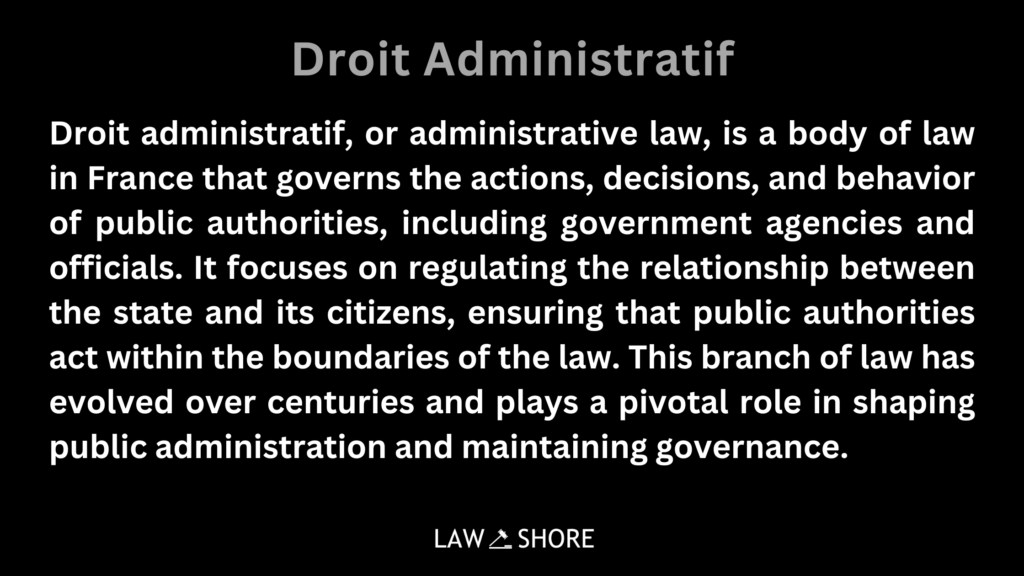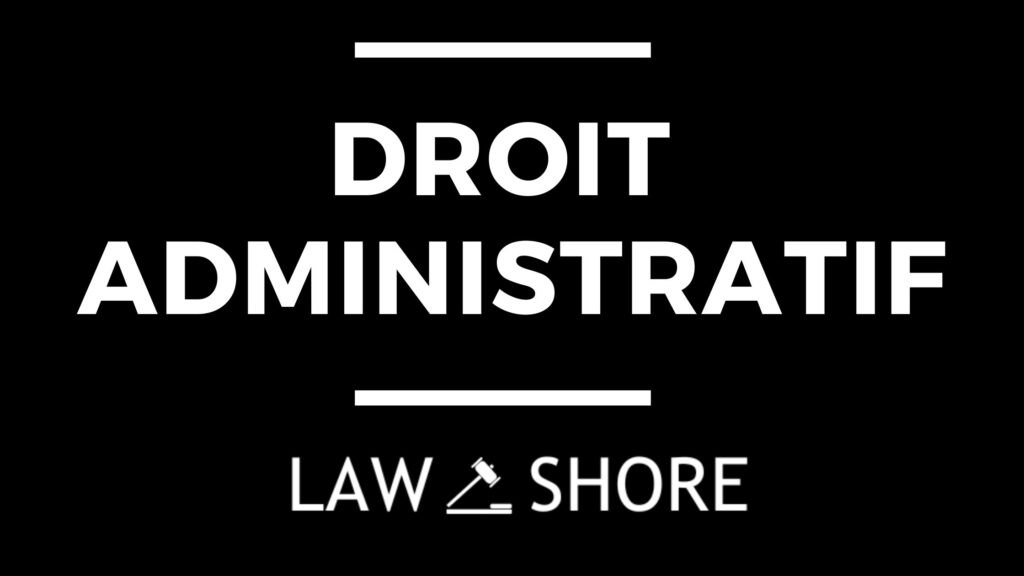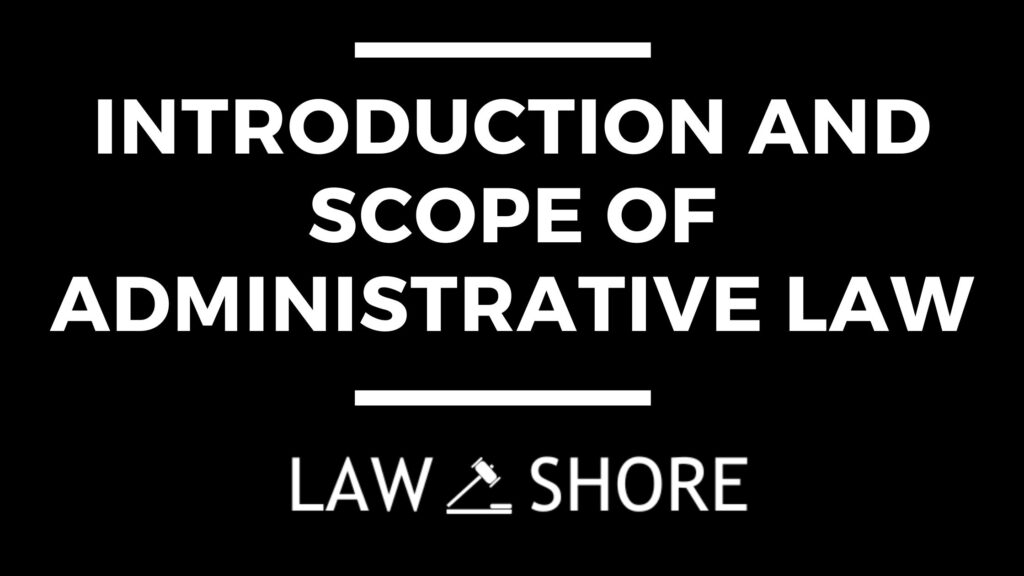Droit Administratif
Table of Contents
ToggleDroit administratif, or administrative law, is a body of law in France that governs the actions, decisions, and behavior of public authorities, including government agencies and officials. It focuses on regulating the relationship between the state and its citizens, ensuring that public authorities act within the boundaries of the law. This branch of law has evolved over centuries and plays a pivotal role in shaping public administration and maintaining governance. While rooted in the French legal system, droit administratif has also influenced legal systems around the world, particularly in civil law countries.
The study of droit administratif is crucial to understanding how the French state operates and how citizens interact with it. It encompasses a wide range of legal principles, including the powers and duties of administrative bodies, judicial oversight, public administration, and the balance between state authority and individual rights.
What is Droit Administratif?

Droit Administratif is a branch of law that governs the actions of public authorities, focusing on the exercise of executive power and the relationship between public institutions and citizens. It is primarily concerned with ensuring that administrative bodies act within their legal bounds and do not violate citizens’ rights. This area of law also governs the methods of administrative decision-making, and the processes through which government decisions can be challenged.
In countries with a civil law tradition, such as France, Droit Administratif evolved as a separate legal field, distinct from general civil law, primarily because of the recognition that the government (the administration) needs special legal provisions to function effectively.
This led to the creation of administrative courts and a separate body of law that applies to the executive, which is often distinct from the law governing private individuals.
Origin of Droit Administratif
The origins of droit administratif can be traced back to the French Revolution (1789-1799), which marked a significant shift in the relationship between the state and its citizens. Before the Revolution, the monarchy wielded considerable authority, often exempt from judicial scrutiny. However, the French Revolution introduced a new framework based on principles of liberty, equality, and fraternity, which required a system to control and supervise administrative authorities.
The establishment of droit administratif was shaped by the Napoleonic era, during which reforms centralized governmental authority. Napoleon Bonaparte’s regime not only consolidated the state’s power but also helped lay the foundation for modern administrative law through the creation of public institutions that could act independently of the judiciary.
The system gained momentum in the 19th century with the development of administrative courts, which were tasked with reviewing the legality of administrative acts. One of the key landmarks in the history of French administrative law was the creation of the Conseil d’État (Council of State) in 1799, which provided a judicial avenue for challenging the actions of the executive branch of government.
Sources of Droit Administratif: The Foundations of French Administrative Law
Droit administratif (administrative law) is a critical area of law that governs the actions of public authorities, including government agencies, ministries, and local governments in France. It regulates the relationship between the state and its citizens, ensuring that public authorities act within the boundaries of legal norms and principles of fairness. The sources of droit administratif provide the legal foundation for this branch of law and guide how administrative bodies and courts should operate.
Understanding the sources of droit administratif is essential for comprehending how France’s administrative legal system functions, especially in the context of its distinctiveness from ordinary civil and criminal law. These sources can be classified into several categories: constitutional law, legislation, regulations, case law, and doctrines. In this article, we will explore these sources in detail –
Constitutional Law
The Constitution of the French Republic is the supreme source of administrative law, forming the legal basis for the functioning of the state, the powers of public authorities, and the protection of individual rights. It sets out the framework within which all administrative acts must operate.
- The Constitution of the Fifth Republic (1958): The current constitution, which is the foundation of the French Republic, establishes the structure of the state and defines the powers of its institutions. It includes provisions related to the organization of government, the distribution of powers between the executive, legislative, and judiciary branches, and the protection of fundamental rights.
- Principles Derived from the Constitution: Several principles derived from the Constitution directly influence administrative law, such as the principle of separation of powers, which maintains the independence of the judiciary from the executive branch, and the principle of legality (administrative acts must comply with the law). Additionally, the Constitutional Council (Conseil Constitutionnel) plays a crucial role in reviewing laws for constitutional conformity, which impacts administrative law.
- International Treaties and Agreements: France is also bound by international agreements and treaties that can influence its domestic administrative law, including those that protect human rights (e.g., the European Convention on Human Rights). The Constitution of the Fifth Republic recognizes the supremacy of certain international laws over domestic legislation, which ensures that international obligations are respected.
Legislation
Statutory law (loi) is a key source of droit administratif. Legislation enacted by the French Parliament forms the body of laws that public authorities must follow. These laws establish the legal framework for administrative actions, define the powers of administrative agencies, and outline the rights and obligations of citizens in relation to public authorities.
- Parliamentary Laws: The French Parliament enacts laws (lois) that directly affect the administration. These laws can regulate various aspects of public administration, such as civil service law, taxation, public procurement, and environmental regulations. Legislative acts are primary sources of droit administratif because they determine the legal limits within which public authorities must operate.
- Organic Laws: These laws are specifically enacted to implement the provisions of the Constitution. They regulate areas that require detailed organization, such as the functioning of public institutions, judicial review procedures, or the establishment of administrative bodies like regulatory authorities or public commissions.
- Administrative Procedures and Statutes: French administrative law is governed by several specific codes, such as the Code of Administrative Justice (Code de justice administrative), which outlines the procedures for judicial review of administrative acts, and the Code of the Local Government (Code des collectivités territoriales), which governs the administrative functions of local authorities.
Regulations and Administrative Acts
Regulations are a central source of droit administratif. They consist of rules made by executive authorities (ministers or other government agencies) that are designed to apply and implement legislative acts. Regulations are essential for the detailed administration and day-to-day functioning of the public sector.
- Decrees (Décrets): A decree is an executive order issued by the President or the Prime Minister, authorized by the law, and having general application. Decrees have the force of law and play a key role in regulating the implementation of legislative provisions. Decrees can deal with a wide range of matters, from administrative procedures to the organization of public services.
- Arrêtés (Ministerial Orders): These are decisions made by government ministers to implement policies in specific sectors. Arrêtés typically have a narrower application than decrees and are used for more detailed, technical regulations. For example, a minister of health may issue an arrêté to regulate hospital procedures or the handling of public health emergencies.
- Circulars and Instructions: Circulars are administrative documents issued by ministries or public agencies that provide guidance on how regulations should be applied. They are not laws themselves but interpret the legal provisions and offer practical instructions to public authorities on their application. Although not legally binding, circulars are influential in administrative practices.
- Regulatory Impact: Regulations complement and further specify legislative provisions, providing the mechanisms necessary for the effective implementation of laws. They allow public authorities to adapt to changing circumstances and manage day-to-day governance without the need for new legislation.
Case Law (Jurisprudence)
Case law is a fundamental source of droit administratif in France. It consists of decisions made by courts, particularly the Conseil d’État (Council of State), which acts as both an advisory body to the government and a judicial body for disputes between individuals and the state.
- Role of the Conseil d’État: The Conseil d’État is the highest administrative court in France and plays a pivotal role in developing and interpreting administrative law. Its rulings set binding precedents that guide future decisions in administrative matters. Through its judgments, the Conseil d’État defines the scope of administrative powers, the limits of discretionary authority, and the application of fundamental principles like legality and natural justice.
- Influence of Administrative Decisions: The Conseil d’État is responsible for reviewing the legality of administrative decisions, including decrees, ministerial orders, and acts of public authorities. Its case law often clarifies the application of laws and regulations and offers interpretations that become authoritative guides for the administration and lower courts.
- Key Decisions and Landmark Cases: Certain decisions by the Conseil d’État have had a profound impact on the development of droit administratif. For example, the landmark case of Arrêt Blanco (1873) established the principle of the public law nature of administrative liability, marking a significant shift from the civil law tradition of private law. Similarly, Arrêt Nicolo (1989) confirmed the primacy of international treaties over national legislation in certain instances.
Doctrines and Legal Scholarship
Doctrines (legal theories and commentaries) also play an influential role in shaping droit administratif, particularly in interpreting complex legal principles and providing clarity on the application of law. Legal scholars and academic institutions contribute to the development of administrative law through their studies, publications, and critiques.
- Legal Scholars’ Influence: Scholars often write extensively about the evolution of administrative law, its principles, and its practical applications. Their works help clarify legal uncertainties and provide theoretical frameworks for understanding administrative power and accountability.
- Jurists and Legal Theory: Notable jurists and legal theorists in France have shaped key concepts in administrative law, such as the balance between state discretion and individual rights, or the relationship between administrative courts and the legislature.
- The Role of Legal Commentaries: Commentaries on administrative court decisions help explain the reasoning behind judicial rulings and contribute to a deeper understanding of legal principles. These commentaries are often published in law reviews, providing a valuable source for both practitioners and academics.
International Law
France, as a member of the European Union and other international bodies, is subject to international treaties and conventions that influence its administrative law. International law can impact administrative law in the following ways:
- European Union Law: As a member of the European Union, France is bound by EU regulations, directives, and decisions. These EU laws often take precedence over national laws and require administrative bodies to comply with EU legal standards, particularly in areas like competition law, environmental regulation, and public procurement.
- International Human Rights Law: France is bound by international human rights agreements, such as the European Convention on Human Rights (ECHR), which protect individual freedoms and rights against improper administrative actions. The Conseil d’État and French courts often reference international conventions when interpreting French administrative law, ensuring alignment with international standards.
Features of Droit Administratif
Droit administratif has several distinctive features that set it apart from general civil law or criminal law. Some of the key features include:
- Separation of Powers: A central feature of French administrative law is the separation between administrative law and ordinary law. Administrative law governs the actions of public authorities, while ordinary law deals with private relations between citizens. This distinction is crucial for understanding how public administration operates independently of the judiciary.
- Specialized Administrative Courts: Unlike most legal systems, France has specialized courts to handle disputes between citizens and public authorities. The Conseil d’État is the highest administrative court, and it has the authority to rule on cases involving public law, including conflicts between individuals and government bodies.
- Public Law vs. Private Law: Administrative law is primarily concerned with public law, which regulates the relationship between citizens and the state. In contrast, private law governs relations between individuals and entities. Droit administratif is thus focused on ensuring that public institutions exercise their powers responsibly and within the bounds of the law.
- Role of Public Authorities: Public authorities, such as ministries, local governments, and regulatory agencies, are vested with special powers to manage public affairs, make regulations, and enforce laws. Droit administratif provides a framework for regulating these powers to avoid abuses and to ensure accountability.
- Special Rules for Public Authorities: Public authorities are subject to a different set of legal rules than private citizens. For instance, administrative acts may not always be subject to the same rules of evidence or procedures as private legal actions. Additionally, administrative authorities are sometimes given broader discretion in certain areas, such as national security or public health.
- Discretionary Powers: One of the hallmarks of droit administratif is the recognition that public authorities often have discretion when it comes to decision-making. This discretionary power is exercised within the confines of law but can vary depending on the circumstances and policy objectives of the public body.
Rules of Droit Administratif
The rules of droit administratif govern how public authorities exercise their powers, make decisions, and resolve disputes. These rules are codified in various laws, decrees, and regulations, but there are several key principles that form the foundation of administrative law in France:
- Principle of Legality (Légalité): Administrative decisions must conform to the law. Any act performed by a public authority that is inconsistent with legal norms can be challenged in court. The principle of legality ensures that public officials do not overstep their powers.
- Principle of Accountability: Public authorities must be held accountable for their actions. This is achieved through judicial review by specialized administrative courts, which can annul administrative decisions that violate the law or principles of fairness.
- Principle of Natural Justice: Administrative decision-making must respect principles of fairness. This includes the right to be heard (audi alteram partem), the right to a fair trial, and the right to access relevant information in the decision-making process. These rules aim to protect citizens from arbitrary or biased decisions by public authorities.
- Principle of Proportionality: This principle ensures that administrative decisions are not excessive in relation to their objectives. Public authorities are expected to act proportionately, ensuring that any restriction on individual rights is justified by a legitimate public interest and is not disproportionate.
- Principle of Non-retroactivity: Administrative regulations and decisions generally cannot be applied retroactively. This rule protects individuals and businesses from the imposition of new laws or policies that would unduly affect actions taken before the law was passed.
Rule of Law vs. Droit Administratif
One of the most significant debates in administrative law is the tension between the Rule of Law and the unique features of droit administratif. The Rule of Law is a fundamental principle that suggests all persons, including the state, are subject to the law. In the context of France, however, the administrative law system allows for a different treatment of public authorities, particularly in their ability to make decisions and exercise discretion without judicial interference in certain areas.
Critics argue that the distinctiveness of droit administratif can sometimes create an imbalance in power, favoring the state at the expense of individual rights. For example, administrative bodies often have discretion in interpreting laws, and their decisions can be insulated from full judicial scrutiny, especially in matters of national security or public order. This can conflict with the Rule of Law’s insistence on uniformity and equality before the law.
Proponents, however, defend the flexibility and adaptability of the French administrative law system, arguing that it is designed to allow public authorities to respond swiftly and effectively to societal needs, which would be impossible under a rigid application of the Rule of Law.
The Role of the Conseil d’Etat
The Conseil d’État is the supreme administrative court in France and holds a central role in the development and application of droit administratif. Established in 1799, the Conseil d’État serves as both a legal advisor to the government and the final arbiter of disputes between individuals and the administration.
The Conseil d’État is tasked with reviewing administrative acts, ensuring that they comply with the law, and determining their legality. It plays a crucial role in maintaining the balance between state power and individual rights. It can annul illegal administrative acts, order corrective measures, and provide guidance on the interpretation of laws.
In addition, the Conseil d’État also plays a significant advisory role in the drafting of new laws and regulations. It helps the government assess the legal validity of proposed legislation and provides advice on matters of public administration.
Droit Administratif: Impact on Public Administration
Droit administratif has a profound impact on public administration in France. By regulating the behavior of public authorities and ensuring accountability, it helps maintain public trust in government institutions. The principles of legality, accountability, and natural justice ensure that administrative decisions are fair, transparent, and subject to oversight.
Moreover, the role of the Conseil d’État ensures that public administration is conducted within the confines of the law, preventing abuses of power and protecting citizens from arbitrary government actions. The presence of specialized administrative courts provides citizens with the necessary legal recourse to challenge government decisions that they believe to be unjust.
The existence of droit administratif also shapes the way public administration operates in practice. It creates a legal framework that guides the functioning of government agencies, regulatory bodies, and local authorities. By providing clear rules and procedures, it fosters efficient and effective governance while protecting citizens’ rights
The Role of Droit Administratif in the Indian Legal System
The concept of Droit Administratif (Administrative Law) plays a vital role in shaping the legal landscape of many countries, especially in jurisdictions influenced by the civil law tradition. While India follows a common law legal system, its administrative law (or administrative jurisprudence) has been significantly influenced by the principles of Droit Administratif, particularly through French and British legal traditions. In India, administrative law regulates the relationship between public authorities (including executive bodies) and citizens, ensuring that governmental actions are lawful, reasonable, and fair.
Regulating Executive Power
One of the key functions of Droit Administratif in India is the regulation of the executive branch’s powers. The executive in India has substantial discretion in areas ranging from law enforcement to welfare programs, regulatory control, and economic management. Administrative law, including principles from Droit Administratif, ensures that these powers are exercised within legal limits and that decisions made by public authorities are not arbitrary or unjust.
In India, the executive is primarily responsible for implementing laws passed by the legislature. However, the executive’s actions are scrutinized and regulated by judicial review to ensure compliance with the Constitution, particularly the Fundamental Rights guaranteed under Part III of the Constitution.
The Indian judicial system, particularly the Supreme Court and High Courts, acts as a check on administrative actions. The courts can review whether the executive has exceeded its powers, acted in a manner that violates constitutional principles, or failed to follow due process.
Ensuring Accountability and Transparency
A central aspect of administrative law is its role in ensuring accountability and transparency in government decision-making. In India, Droit Administratif principles influence mechanisms that hold administrative authorities accountable to the public. This includes:
- Judicial Review of Administrative Decisions: The Supreme Court and High Courts in India play a critical role in reviewing the legality of decisions made by administrative bodies. Through writ petitions filed under Article 32 (for the Supreme Court) and Article 226 (for the High Courts), citizens can challenge unlawful actions or omissions by public authorities. This ensures that administrative actions comply with the law, are transparent, and do not violate individual rights.
- Principles of Natural Justice: Administrative bodies are bound by the principles of natural justice, including the right to be heard, fairness, and the rule against bias. These principles ensure that government decisions are made in a fair and transparent manner. In India, the application of these principles is grounded in Article 14 of the Constitution, which guarantees the right to equality before the law.
- Public Interest Litigation (PIL): PIL has been an important tool in Indian administrative law, allowing individuals or groups to seek judicial intervention on behalf of the public interest. PIL petitions are used to challenge government actions that are harmful to the public or violate fundamental rights. Through PIL, courts ensure that public authorities act in a manner consistent with the broader interests of society.
Defining Administrative Discretion
Administrative discretion refers to the power granted to public authorities to make decisions within the framework of law. While discretion is necessary for the efficient functioning of the government, it can also lead to arbitrary actions or misuse of power if not properly regulated.
The concept of administrative discretion in Indian law closely mirrors the principles of Droit Administratif, which seeks to limit the scope of administrative discretion through judicial review and procedural safeguards.
- Judicial Oversight: The Indian judiciary has the power to review the exercise of administrative discretion. Courts evaluate whether discretion has been exercised in a manner that is reasonable, non-arbitrary, and in accordance with law. Courts also ensure that discretionary decisions do not violate Fundamental Rights.
- Discretion in Regulatory and Licensing Functions: Administrative authorities in India, such as regulatory bodies in fields like telecommunications, banking, and the environment, are given wide discretion in enforcing regulations, issuing licenses, and imposing penalties. While these authorities have broad powers, they must exercise them within legal boundaries and in a manner that is consistent with the principles of justice.
Judicial Review and the Role of Courts
The judiciary in India plays a crucial role in enforcing administrative law, and its function in judicial review is one of the key aspects that differentiates India’s legal system from other countries. Judicial review is the process by which courts examine the constitutionality and legality of administrative actions.
The Supreme Court of India and High Courts have the power to review executive actions and strike down unconstitutional or illegal administrative decisions. Judicial review ensures that:
- Government Actions Are Within Legal Boundaries: Administrative decisions, regulations, and policies must conform to the Constitution and statutory laws. Courts can declare an administrative action ultra vires (beyond the powers granted by law) if it violates any legal provisions or fundamental rights.
- Citizens’ Rights Are Protected: Administrative law ensures that citizens have a forum through which they can challenge unlawful or arbitrary actions by public authorities. This promotes accountability, transparency, and respect for individual rights.
In India, judicial review of administrative actions is grounded in Article 32 (which provides citizens the right to approach the Supreme Court for the enforcement of fundamental rights) and Article 226 (which allows High Courts to issue writs for the enforcement of fundamental rights or for any other purpose). The courts have broad jurisdiction to scrutinize administrative decisions, ensuring they comply with constitutional principles.
Specialized Administrative Tribunals
In addition to regular courts, India has established several administrative tribunals to adjudicate disputes between citizens and public authorities. The Central Administrative Tribunal (CAT), for example, was created to handle service-related disputes involving government employees. These tribunals serve as specialized forums to resolve administrative matters more efficiently, outside the regular court system.
While administrative tribunals are designed to expedite dispute resolution, their decisions can still be subjected to judicial review by the High Courts or the Supreme Court. This ensures that administrative tribunals do not exceed their jurisdiction or act contrary to law, and helps maintain the principles of Droit Administratif in the Indian system.
Conclusion
Droit administratif is a cornerstone of the French legal system, offering a distinct approach to regulating the relationship between the state and its citizens. Its origins in the post-revolutionary era have shaped its evolution, leading to a robust legal framework for overseeing administrative actions. Through principles of legality, accountability, and natural justice, it provides citizens with the tools to challenge unjust government decisions while allowing public authorities to perform their duties efficiently and effectively. With the Conseil d’État at its helm, droit administratif continues to play a vital role in shaping public administration in France and influencing administrative law worldwide.
The principles of Droit Administratif are crucial in ensuring that the Indian executive operates within a legal framework, providing mechanisms for accountability, transparency, and fairness. By regulating administrative actions and subjecting them to judicial review, India’s administrative law system promotes good governance and the protection of citizens’ rights.
Despite challenges, the influence of Droit Administratif on India’s legal system continues to ensure that public authorities respect the rule of law and uphold constitutional values. Moving forward, further strengthening of administrative law principles, improving access to justice, and enhancing the transparency of administrative decisions will be key in ensuring that India’s governance remains accountable, fair, and just.
Also, Check Out Other Topics in Administrative Law:
- Ombudsman in Administrative Law
- Introduction and Scope of Administrative Law
- Promissory Estoppel in Administrative Law
- Public Corporation in Administrative Law
- Judicial Review of Administrative Action
- Reasons for Growth of Administrative Law
- Separation of Powers in Administrative Law
- Doctrine of Ultra Vires in Administrative Law
- Whistleblowing
- Nature of Administrative Law
- Red Light and Green Light Theory of Administrative Law
- Sub Delegation in Administrative Law
- Delegatus Non Potest Delegare
Explore Law Shore: law notes today and take the first step toward mastering the fundamentals of law with ease.

After Completing my LLB hons, I started writing content about legal concepts and case laws while practicing. I finally started Law Shore in 2024 with an aim to help other students and lawyers.



